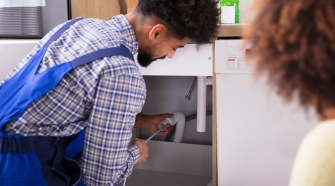Today’s education is undergoing a major overhaul. The Common Core curriculum has been implemented in every state, and charter schools are on the rise, increasing from 3400 schools in 2005 to 5300 in 2011. Parents are looking for better educational options for their children. Private schools have always been one of those options, with about 10% of the children in the nation attending them. While there are many pros and cons with both private and public schools, it’s worth noting a few of the reasons parents are choosing private schools today.
Private Schools Don’t Follow State Standards
For many parents, the greatest appeal of the private schools is the freedom that comes with the private school curriculum. Public schools follow a state or national curriculum, and all of the children must be taught within those educational standards. Because private school funding does not come through the state, these schools are able to adopt and create their own curriculum. Many of them choose to implement state testing, but oftentimes private schools will adopt religious or secular curriculums that wouldn’t be accepted on a state level. It’s also not uncommon for a private school to create specialized programs that offer children a greater variety of classes and learning opportunities.
Private School Students Perform Better
According to the National Assessment of Educational Progress, private school students typically outperform their public school peers. When tests done on both groups of students were compared, the private school attendees had average scores that were higher than their counterparts. These increased scores applied in reading, as well as science and math. In addition to this, private school students are often required to perform better in order to graduate. Curriculum requirements tend to be more stringent than a public school setting, and often include community service, which can help the student better understand the value of community and their individual impact.
Competitive Admission Equals a Focused Student
Unlike public schools, private schools do not have to allow every student entry into their school. Students have to submit an application to the school, and then complete the application process successfully before they will be admitted into the school. Once they are in, they are often required to maintain appropriate behavior both academically and individually. An example of a private school admission process can be found from Mounds Park Academy. This shows how many private schools determine admission. If a student does not perform as expected academically, or chooses to behave inappropriately on an ongoing basis, it’s not uncommon for the school to dismiss the student to allow entry for another student who will meet the school’s standards. While this may sound harsh, it keeps in place an environment that promotes learning and individual growth.
As a parent you get to determine what kind of education your child is going to need, and what kind of education he will receive. The private school is one of many options available to you and your child, and it’s one that is worth considering. It’s imperative that you work with educational advisors and teachers that have your child’s best interest in mind. These individuals can help you determine the learning environment that will honor your child the best.
















